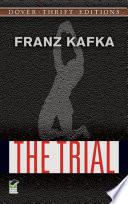Works
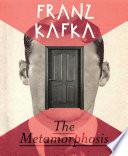
The Metamorphosis
Franz Kafka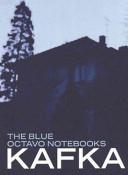
The Blue Octavo Notebooks
Franz Kafka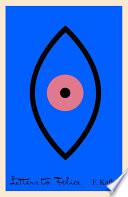
Letters to Felice
Franz KafkaThe Castle
Franz Kafka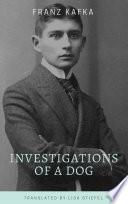
Investigations of a Dog
Franz KafkaLetter to His Father
Franz Kafka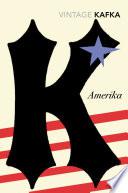
Amerika
Franz KafkaParables and Paradoxes
Franz KafkaOn Parables
Franz KafkaA Fratricide
Franz Kafka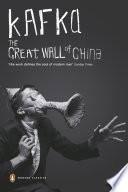
The Great Wall of China
Franz KafkaThe Silence of the Sirens
Franz KafkaFamous Franz Kafka Quotes
Source: The Metamorphosis (1915)
“A book must be the axe for the frozen sea within us.”
Letter to Oskar Pollak http://www.languagehat.com/archives/001062.php (27 January 1904)
Variant translations:
If the book we are reading does not wake us, as with a fist hammering on our skulls, then why do we read it? Good God, we also would be happy if we had no books and such books that make us happy we could, if need be, write ourselves. What we must have are those books that come on us like ill fortune, like the death of one we love better than ourselves, like suicide. A book must be an ice axe to break the sea frozen inside us.
What we need are books that hit us like a most painful misfortune, like the death of someone we loved more than we love ourselves, that make us feel as though we had been banished to the woods, far from any human presence, like a suicide. A book must be the ax for the frozen sea within us.
A book should be an ice-axe to break the frozen sea within us.
A book must be an ice-axe to break the seas frozen inside our soul.
A book should serve as the ax for the frozen sea within us.
Variant: A book must be the axe for the frozen sea inside us.
Context: I think we ought to read only the kind of books that wound and stab us. If the book we are reading doesn't wake us up with a blow on the head, what are we reading it for?... we need the books that affect us like a disaster, that grieve us deeply, like the death of someone we loved more than ourselves, like being banished into forests far from everyone, like a suicide. A book must be the axe for the frozen sea inside us.
Franz Kafka Quotes about the world
“In man's struggle against the world, bet on the world.”
52, Im Kampf zwischen Dir und der Welt, sekundiere der Welt.
Aphorism 52 in Unpublished Works 1916-1918 http://www.kafka.org/index.php?unpub1916_1918
Variant translations:
In the struggle between yourself and the world, back the world.
In the struggle between yourself and the world, side with the world.
In the fight between you and the world, back the world.
The Zürau Aphorisms (1917 - 1918)
Variant: In the struggle between yourself and the world, second the world.
Du kannst Dich zurückhalten von den Leiden der Welt, das ist Dir freigestellt und entspricht Deiner Natur, aber vielleicht ist gerade dieses Zurückhalten das einzige Leid, das Du vermeiden könntest.
104
The Zürau Aphorisms (1917 - 1918)
103
The Zürau Aphorisms (1917 - 1918)
54
The Zürau Aphorisms (1917 - 1918)
Context: There is nothing besides a spiritual world; what we call the world of the senses is the Evil in the spiritual world, and what we call Evil is only the necessity of a moment in our eternal evolution.
One can disintegrate the world by means of very strong light. For weak eyes the world becomes solid, for still weaker eyes it seems to develop fists, for eyes weaker still it becomes shamefaced and smashes anyone who dares to gaze upon it.
Franz Kafka Quotes about the trip
Variant: What I write is different from what I say, what I say is different from what I think, what I think is different from what I ought to think and so it goes further into the deepest darkness.
“Written kisses don't reach their destination, rather they are drunk on the way by the ghosts.”
Source: Letters to Milena
“There is a destination but no way there; what we refer to as way is hesitation.”
Source: The Zürau Aphorisms
Franz Kafka: Trending quotes
“I am a cage, in search of a bird.”
16
The Zürau Aphorisms (1917 - 1918)
Variant: A cage went in search of a bird.
Franz Kafka Quotes
“I have spent all my life resisting the desire to end it.”
Source: Letters to Milena
“You are the knife I turn inside myself; that is love. That, my dear, is love.”
Source: Letters to Milena
“I miss you deeply, unfathomably, senselessly, terribly.”
Source: Letters to Milena
“sleep is the most innocent creature there is and a sleepless man
the most guilty.”
Source: Letters to Milena
“If I could drown in sleep as I drown in fear I would be no longer alive.”
Source: Letters to Milena
Source: Letters to Milena
“Calm —indeed the calmest— reflection might be better than the most confused decisions”
Source: The Metamorphosis
13
The Zürau Aphorisms (1917 - 1918)
Attributed to Kafka in Ambiguous Spaces (2008) by NaJa & deOstos (Nannette Jackowski and Ricardo de Ostos), p. 7, and a couple other publications since, this is actually from Report to Greco (1965) by Nikos Kazantzakis, p. 434
Misattributed
50
The Zürau Aphorisms (1917 - 1918)
Context: Man cannot live without a permanent trust in something indestructible in himself, though both the indestructible element and the trust may remain permanently hidden from him. One of the ways in which this hiddenness can express itself is through faith in a personal god.
“The decisive moment in human evolution is perpetual.”
6
The Zürau Aphorisms (1917 - 1918)
Context: The decisive moment in human evolution is perpetual. That is why the revolutionary spiritual movements that declare all former things worthless are in the right, for nothing has yet happened.
3 (20 October 1917); as published in The Blue Octavo Notebooks (1954); also in Dearest Father: Stories and Other Writings (1954); variant translations use "cardinal sins" instead of "main human sins" and "laziness" instead of "indolence".
The Zürau Aphorisms (1917 - 1918)
Context: There are two main human sins from which all the others derive: impatience and indolence. It was because of impatience that they were expelled from Paradise; it is because of indolence that they do not return. Yet perhaps there is only one major sin: impatience. Because of impatience they were expelled, because of impatience they do not return.
Source: Letters to Milena
Variant: You are at once both the quiet and the confusion of my heart.
Source: Letters to Felice
“There are two main human sins from which all the others derive: impatience and indolence.”
3 (20 October 1917); as published in The Blue Octavo Notebooks (1954); also in Dearest Father: Stories and Other Writings (1954); variant translations use "cardinal sins" instead of "main human sins" and "laziness" instead of "indolence".
The Zürau Aphorisms (1917 - 1918)
Context: There are two main human sins from which all the others derive: impatience and indolence. It was because of impatience that they were expelled from Paradise; it is because of indolence that they do not return. Yet perhaps there is only one major sin: impatience. Because of impatience they were expelled, because of impatience they do not return.
Source: Letters to Milena
“For myself I am too heavy, and for you too light.”
Source: Letters to Milena
“I’m doing badly, I’m doing well, whichever you prefer.”
Variant: I’m doing badly, I’m doing well; whichever you prefer.
Source: Letters to Milena
“the blend of absurd, surreal and mundane which gave rise to the adjective "kafkaesque”
Source: The Metamorphosis
“I only fear danger where I want to fear it.”
Source: The Metamorphosis
Hat matt nicht die Augen, um sich sie auszureißen und das Herz zum gleichen Zweck? Dabei ist es ja nicht so schlimm, das ist Übertreibung und Lüge, alles ist Übertreibung, nur die Sehnsucht ist wahr, die kann man nicht übertreiben. Aber selbst die Wahrheit der Sehnsucht ist nicht so sehr ihre Wahrheit, als vielmehr der Ausdruck der Lüge alles übrigen sonst. Es klingt verdreht, aber es ist so.
Auch ist es vielleicht nicht eigentlich Liebe wenn ich sage, daß Du mir das Liebste bist; Liebe ist, daß Du mir das Messer bist, mit dem ich in mir wühle.
Letter to Milena Jesenská (14 September 1920) http://www.abyssal.de/zitate/liebe.htm
Variant translations:
In this love you are like a knife, with which I explore myself.
Letters to Milena (1952)
“There are questions we could not get past if we were not set free from them by our very nature.”
56
The Zürau Aphorisms (1917 - 1918)
“When one has once accepted and absorbed Evil, it no longer demands to be believed.”
28
The Zürau Aphorisms (1917 - 1918)
69
The Zürau Aphorisms (1917 - 1918)
106
The Zürau Aphorisms (1917 - 1918)
80
The Zürau Aphorisms (1917 - 1918)
“Association with human beings lures one into self-observation.”
77
The Zürau Aphorisms (1917 - 1918)
“In a certain sense the Good is comfortless.”
30
The Zürau Aphorisms (1917 - 1918)
“To animalise is humane, to humanise is animal.”
9; parody of a statement of Victor Hugo
The Zürau Aphorisms (1917 - 1918)


